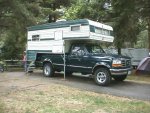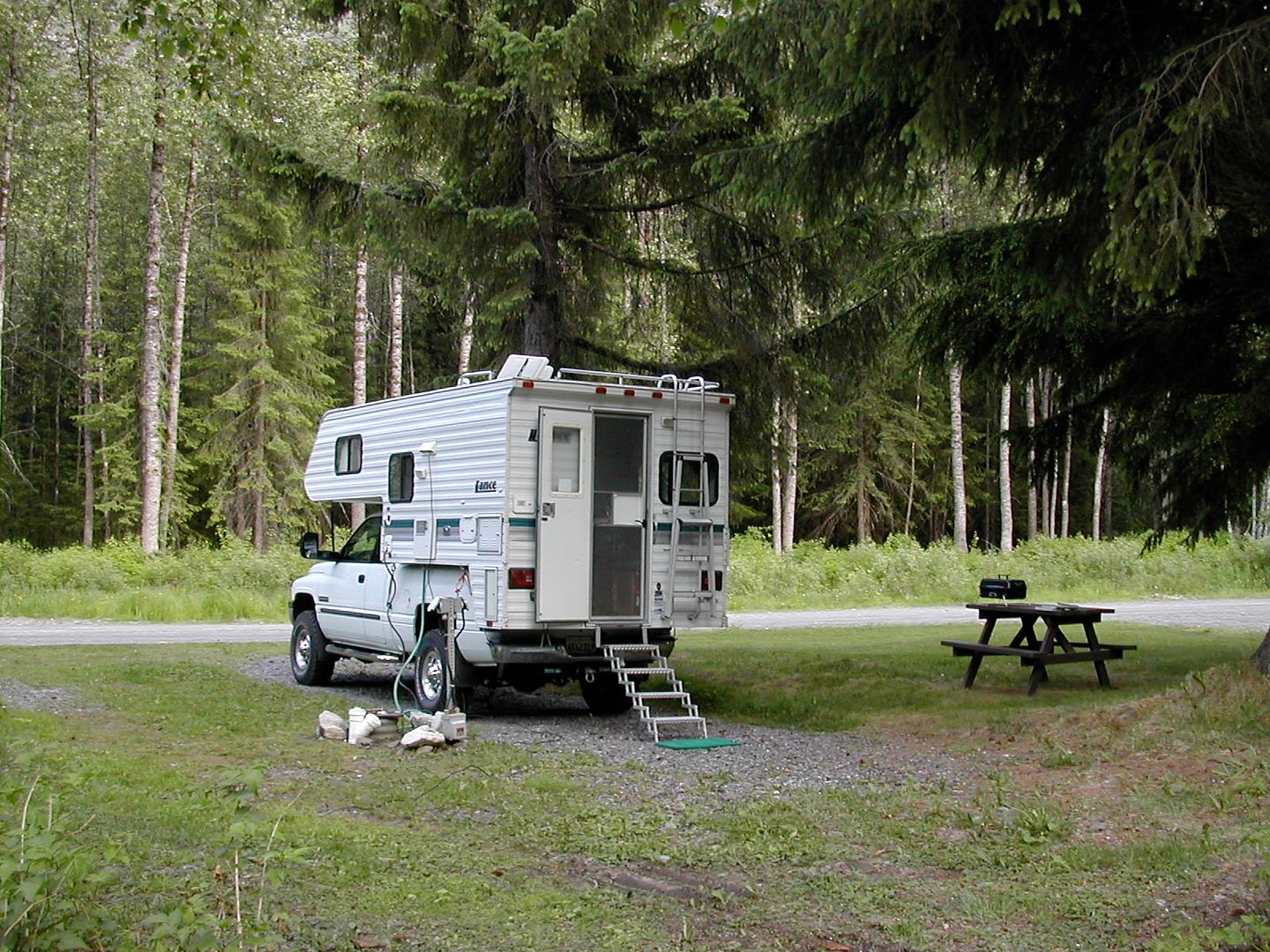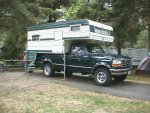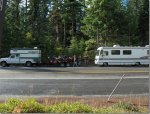NorthernWoodsman
Adventurer/tinkerer
Asking for a friend.... My friend Sophia has her own business and plans to take it on the road soon. She's been looking for an older F250-F350 Powerstroke diesel with plans to haul a camper around the country. I've been helping her with the truck purchase, but where I fall short on knowledge is in the hauling of a camper.
Her plans include using a hard-sided slide in camper. The photos I saw of the one she is considering are of an older model that extends beyond the bed by about a foot to a foot and half. Anyways, I'm concerned for her as this is her first time operating a rig this big and hauling a camper and I want to be sure she's safe doing it. This is also research as I have been considering do the same soon myself, but with a pop-up camper. So this is where you come in-
What modifications, if any, should she do in order to haul a camper?
Added leaf in the rear springs?
Air bags?
What about the front suspension? Brakes?
Anything you can offer would be greatly appreciated. I want to be sure to put her on the right path so she's successful in her business venture.
Thanks in advance!
Her plans include using a hard-sided slide in camper. The photos I saw of the one she is considering are of an older model that extends beyond the bed by about a foot to a foot and half. Anyways, I'm concerned for her as this is her first time operating a rig this big and hauling a camper and I want to be sure she's safe doing it. This is also research as I have been considering do the same soon myself, but with a pop-up camper. So this is where you come in-
What modifications, if any, should she do in order to haul a camper?
Added leaf in the rear springs?
Air bags?
What about the front suspension? Brakes?
Anything you can offer would be greatly appreciated. I want to be sure to put her on the right path so she's successful in her business venture.
Thanks in advance!




